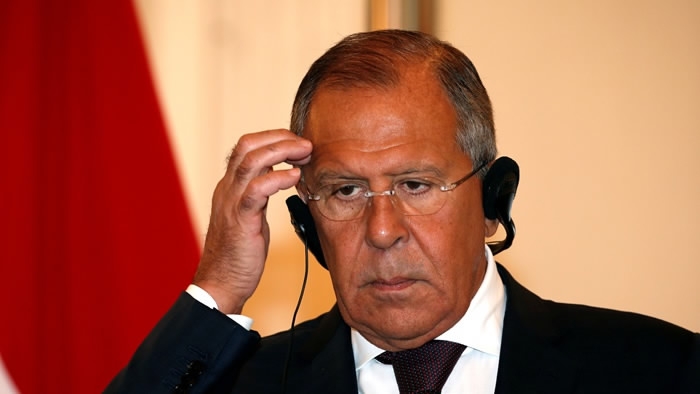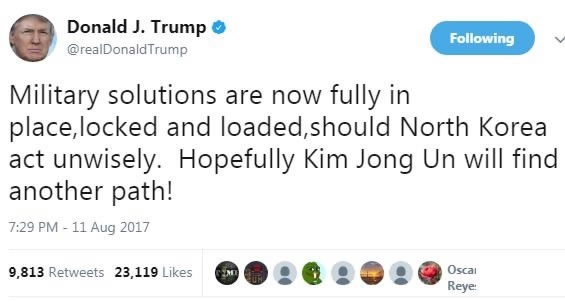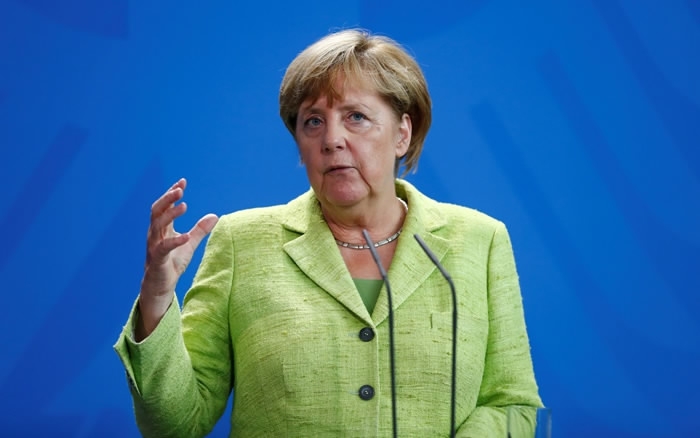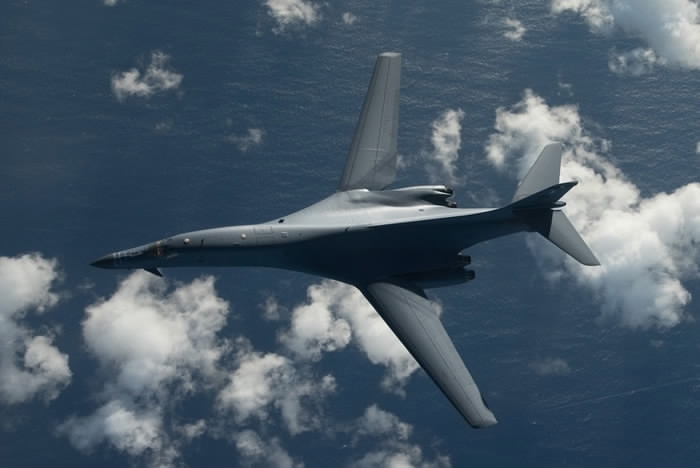
World
22:49, 11-Aug-2017
Russia urges US to take first step to cool tensions over DPRK
CGTN

Russian Foreign Minister Sergei Lavrov on Friday cautioned that the risks of escalation of tensions between the United States and the DPRK were "very high" following the recent war of words between Washington and Pyongyang.
"I believe the risks are very high, especially considering this rhetoric, when direct threats of using force are voiced," Lavrov said at a youth forum in the Vladimir region east of Moscow.
Lavrov did not refer to US President Donald Trump's most recent remark that the US military is "locked and loaded" in the event of a misstep by Pyongyang, but said Moscow is "very alarmed" at Washington's rhetoric of preemptive military action.

Twitter Screenshot
Twitter Screenshot
He added that the US, as a more powerful state than the DPRK, should take the first step to cool tensions.
"When a fight has nearly broken out, the first step away from the dangerous threshold should be taken by the side that is stronger and smarter," Lavrov said.
Moscow has partnered up with China to push an initiative that would see Pyongyang halt missile tests in return for the US ending military drills in the region.
Germany rejects use of force
German Chancellor Angela Merkel said Friday that she opposed any use of force to resolve the conflict with the DPRK.
"I don't envision a military solution to this conflict but rather consistent work as we've observed at the United Nations Security Council," Merkel told reporters.

German Chancellor Angela Merkel addresses a news conference at the Chancellery in Berlin, Germany, August 11, 2017. /Reuters Photo
German Chancellor Angela Merkel addresses a news conference at the Chancellery in Berlin, Germany, August 11, 2017. /Reuters Photo
"Germany will very intensively take part in the options for resolution that are not military but I consider a verbal escalation to be the wrong response," she said when asked about Trump's latest tweets on the DPRK.
Merkel called for "very close cooperation" to defuse tensions in the region "particularly by the United States and China but also South Korea and Japan."
The war of words between Washington and Pyongyang intensified recently, as the DPRK military announced that it was working on plans for a missile strike near the US Pacific territory of Guam and Trump said that threats to the US would be met with "fire and fury."

A US Air Force B-1B Lancer Bomber flies a 10-hour mission from Andersen Air Force Base, Guam, into Japanese airspace and over the Korean Peninsula, July 30, 2017. /Reuters Photo
A US Air Force B-1B Lancer Bomber flies a 10-hour mission from Andersen Air Force Base, Guam, into Japanese airspace and over the Korean Peninsula, July 30, 2017. /Reuters Photo
On Friday, the Chinese Foreign Ministry urged calm among all parties involved in the DPRK nuclear crisis.
"All sides should do more to help ease tensions on the Korean Peninsula and not to take turns in showing strength," Chinese Foreign Ministry spokesman Geng Shuang stressed in a written statement.
Source(s): AFP

SITEMAP
Copyright © 2018 CGTN. Beijing ICP prepared NO.16065310-3
Copyright © 2018 CGTN. Beijing ICP prepared NO.16065310-3